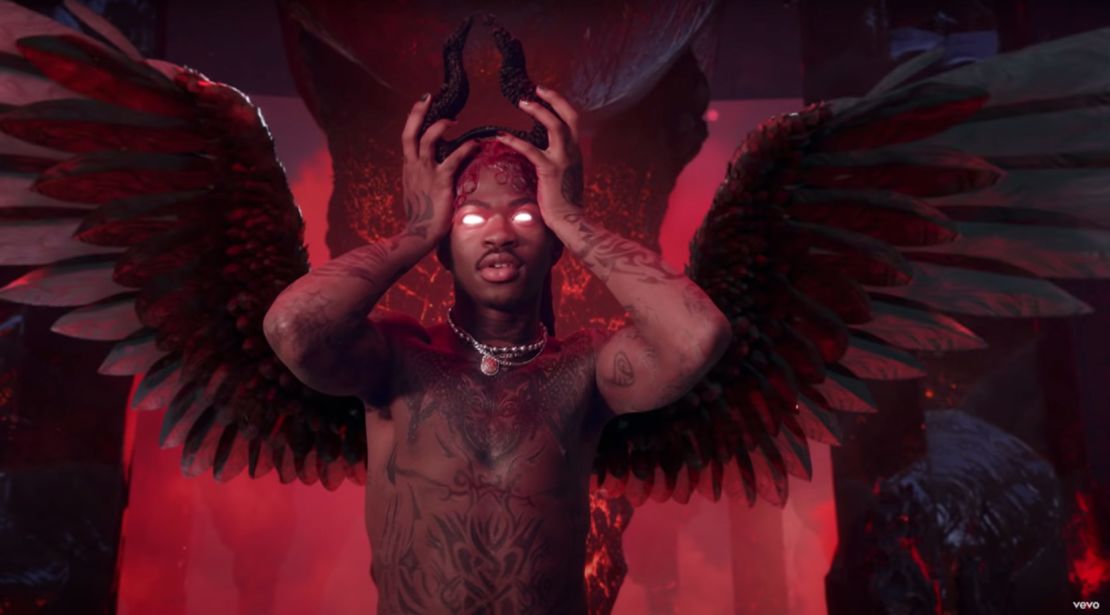Editor’s Note: Clay Cane is a Sirius XM radio host and the author of “Live Through This: Surviving the Intersections of Sexuality, God, and Race.” Follow him on Twitter @claycane. The opinions expressed in this commentary are his. View more opinion articles on CNN.
Lil Nas X has the performative outrage machine on overdrive.
His music video for “Montero (Call Me By Your Name),” which shows the rapper giving a CGI Satan a lap dance and killing him, went viral.

Separately, the hitmaker’s new “Satan” shoes quickly sold out.
Meanwhile, high-profile pastors are referring to him as a thug and accusing him of Satan worship. The governor of South Dakota tweeted Bible verses at him. A Black conservative, who once pretended to be a Georgia elector, implied the singer’s soul was in peril, tweeting “hell is hot.” It seems that some conservatives, many of whom famously whine about “cancel culture,” are trying to cancel the musician.
Lil Nas X, who was born Montero Lamar Hill, is remaining unapologetic on Twitter. From his reactions to the outrage, it’s clear that he isn’t afraid of your hell. As Jean-Paul Sartre wrote in the iconic play “No Exit”: “Hell is other people.”
Among many recent tweets, X wrote on March 27, “i spent my entire teenage years hating myself because of the s–t y’all preached would happen to me because i was gay. so i hope u are mad, stay mad, feel the same anger you teach us to have towards ourselves.”

This tweet speaks volumes for millions of queer folks, especially Black queer people, who have suffered spiritual and theological violence at the hand of church doctrines. X’s words are ones the late, great James Baldwin – who once wrote, “Because I was born in a Christian culture, I never considered myself to be totally a free human being” – would admire and support.
Like Baldwin, Lil Nas X is insisting on being totally free. He is turning the devil’s mirror on everyone who told him to hate himself. He is refusing to wallow in the “love the sinner, hate the sin” trope, and he is shedding light on the literal hell the people in his community have been put through. For many queer folks, especially youth, hell is right here on Earth, in churches, schoolyards and homes.
The real hell is forged by institutions that oppress and shame, the people in power who uphold those institutions, the people who keep queer youth in spiritual and mental bondage, from the homophobic preacher to the corrupt politician. Sartre was right: Hell is other people.
Hate disguised as Scripture is one reason why so many Black queer youth are suicidal. There is blood on the hands of many churches and social conservatives. Lil Nas X is using his platform to say, “no more.”

If you are a person who follows Christian religious dogma, you know the devil cannot be killed – not even a devil from a CGI pop imagination. It’s rather amusing that people are more offended by Lil Nas X writhing around in red cornrows than actual evil that harms people every day.
Accusations that Lil Nas X is promoting Satan worship are laughable. Artists playing with religious imagery is nothing new, from Judas Priest to Madonna to Marilyn Manson to DMX – DMX and Marilyn Manson even partnered on a 1998 song called “The Omen (Damien II),” which included the lyrics “Here we are on our way to hell / We’re gonna do it, and we do it well.” Rather than hurt their careers, these provocateurs became even more famous for blaspheming against the church.
Until recently, it was unheard of for a Black queer artist to be as successful as Lil Nas X. Disco singer Sylvester and Jermaine Stewart, who sang 1986’s “We Don’t Have to Take Our Clothes Off,” were immensely talented but suffered severe career consequences due to their sexuality. Once upon a time, just a rumor an artist – especially a Black artist – was gay could ruin their career.
Conventional approaches to commercial viability mandate that Lil Nas X is not supposed to be this Black, this gay and this unapologetic. And yet, he is.
Are the music video and shoes Satanic? Does it matter? Lil Nas X has never publicly declared himself a Christian.
As a result, Lil Nas X’s video has only exposed demons in other people. He is a Black queer man dismantling a cycle of shame. While people are calling him blasphemous, he’s providing healing for those who admire him. That said, if your God is contingent upon a 21-year-old’s music video or a pair of shoes, then your God may not be as almighty as you believe.
